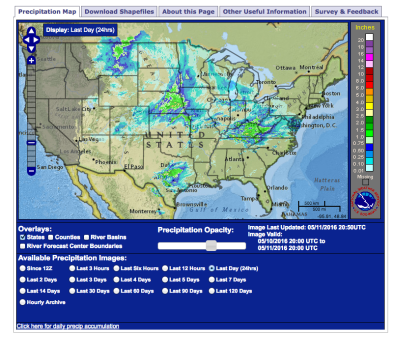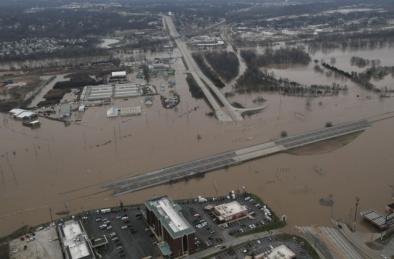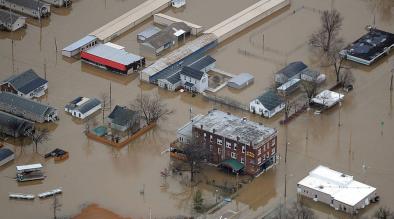Science Source
Climate Change in the Midwest: A Synthesis Report for the National Climate Assessment
- The report, prepared as a contribution to the Third National Climate Assessment, addresses the potential impacts of climate change on natural systems, human health, and several important economic sectors within the Midwest
- Finds that annual mean temperature in the Midwest has warmed since approximately 1900, with annual precipitation generally increasing from the mid 1930s to present
- Finds that increases in both the number of wet days and the frequency of heavy precipitation events contribute to the larger precipitation totals
- Finds the region’s ecosystems are highly vulnerable to the direct impacts of climate change and to climate-related exacerbation of current stressors such as invasive species, pollution, and pests and pathogens
- Finds that changes in the variability, timing and amount of growing season precipitation will have a substantial impact on future crop yields and the number of workable field days, and an increased likelihood of extreme heat events will impact Midwestern meat, milk, and egg production
- Finds flooding along the region’s major rivers, including the Mississippi River, has serious consequences for riverine communities and on transportation
- Finds that climate change leads to greater frequency of heat waves, decreased air quality, and greater risk of waterborne disease, especially given the aging municipal water systems in the region, are of concern
Related Content
Real Time Data

Feb 25, 2016 | National Weather Service
US Precipitation Map
Science Source
| Climate Central
Unnatural Coastal Floods: Sea level rise and the human fingerprint on U.S. floods since 1950
Benjamin H. Strauss, Robert E. Kopp, William V. Sweet et al
Headline

Feb 17, 2016 | Ars Technica
Recent St Louis flooding made worse by human changes to landscape
Headline

Feb 8, 2016 | Marketplace
Record floods in Missouri spur debate over levees


